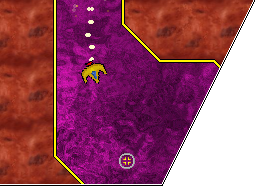Chock-a-sad news from the choc-a-block community today - the BBC's analogue Ceefax service suffered a major turning-off this week and will be phased out entirely by October. I don't think that many people I know in America will really understand this, because the people I've talked to say they just never had anything like it at all and are confused by the entire concept. But I have really fond memories of all the Teletext services, crude as they look by today's standards - they were text pages broadcast over the television by an aging BBC Micro somewhere in Broadcasting House's attic. It was what we had before the Internet, and somehow it's easy to get nostalgic about these primitive things with their blocky textmode 8-colour graphics despite their inconvenience compared to what we have today. Quite a lot of my memory is in having to enter a number and then wait while the page counter rolled around until it broadcast the page you had requested (and on the subject of speed, if the person in that BBC article is finding that their updates to Internet pages are happening at anything less than the speed of light I would probably ask them to take a serious second look at their infrastructure). Alongside the weather (presented in a glorious 4-colour map of dots), cricket results and recipes from the latest episode of Ready Steady Cook, there was some really strange stuff on it. There was a page called "Mega-zine" that I used to read a lot but never participated in myself, full of thoughts from people with manufacturedly stupid pseudonyms like The Twelfth Lemon, and some lunatic who always talked about polo and whisky who called himself The Brigadier. In that way, it was much like a very slow Internet forum as we know them today - with Backchat over on Ceefax being a prototype of Youtube in being exclusively populated by complete dipsticks. My favourite place, though, was Digitiser, the one-man sort of combined computer magazine and mental asylum where news was distributed by text-art characters such as Fat Sow and Zombie Dave (along with the beatboxing snakes and Inspector Morse) - just trying to explain it or its surreal sense of humour is a futile task, but its Wikipedia page makes a straight-faced attempt at it:
I was actually on this at one point, after answering a request for help on the tips page (which was then hosted by a character called Mr. Nude). Unfortunately, my already quite short letter had to be trimmed down to fit on the page and it came out mostly as gibberish. Much later on, the original Crystal Towers got mentioned on its successor, 4-Players. One feature that I'll really miss from it will be the old-style subtitles, which lived on page 888 of all the major services - double-height text on a black background, coloured to indicate who was speaking (which I used a lot, because I tended to watch Friday night television at low volume in my room after everyone else had gone to bed). One of the all-time hidden classics on British television could be found in putting them on for Never Mind the Buzzcocks during the intros round and watching how the subtitlers had handled the unearthly noises produced in the panel's attempts to impersonate pop songs, with #Do do do do nyoot nyoot weeka weeka bow being a typical example. This wasn't the only treat to be found - the subtitler for ITV's showing of Back to the Future made the questionable decision to subtitle the soundtrack, inserting notices like SCARY MUSIC in the middle of the dialogue. And during a programme I can't remember* which had a feature on the European Vegetable Orchestra, the person responsible for the captions made the best of his chance to let people know exactly what he thought of their performance, subtitling it first as VARIOUS ABSURD SQUAWKING NOISES and then concluding with CACOPHONY. The text services that are possible over digital television must technically outclass all of this in every way possible... but to all of us, it just won't be the same! * All right, Eurotrash 2012-04-18 14:41:00 3 comments |
 Track the T
Track the T
